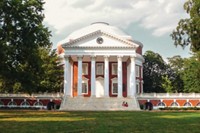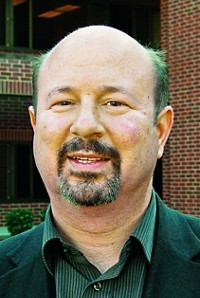Advertisement
Grab your lab coat. Let's get started
Welcome!
Welcome!
Create an account below to get 6 C&EN articles per month, receive newsletters and more - all free.
It seems this is your first time logging in online. Please enter the following information to continue.
As an ACS member you automatically get access to this site. All we need is few more details to create your reading experience.
Not you? Sign in with a different account.
Not you? Sign in with a different account.
ERROR 1
ERROR 1
ERROR 2
ERROR 2
ERROR 2
ERROR 2
ERROR 2
Password and Confirm password must match.
If you have an ACS member number, please enter it here so we can link this account to your membership. (optional)
ERROR 2
ACS values your privacy. By submitting your information, you are gaining access to C&EN and subscribing to our weekly newsletter. We use the information you provide to make your reading experience better, and we will never sell your data to third party members.
Policy
Freedom of Information Versus Academic Freedom
Records requests raise questions about public university researchers’ right to private exchanges
by Cheryl Hogue
November 14, 2011
| A version of this story appeared in
Volume 89, Issue 46

Researchers are known for kicking ideas around, debating theories, and sometimes vociferously disagreeing. They do this via a variety of means—including face-to-face interactions, website posts, and e-mail exchanges. Freewheeling deliberations have long been considered an essential part of science.
But a high-profile legal case in Virginia is raising fears that e-mail discussions among scientists could be stifled if any of the researchers involved in an e-mail string works for a public college or university. The lawsuit pits academic freedom against the public’s right to obtain state records—including e-mails of state employees. Some worry broadly that the case, and others like it, could spur others to use state freedom of information laws in attempts to dissuade researchers at public universities from addressing controversial subjects.
In Virginia, the American Tradition Institute (ATI), a libertarian group that is dismissive of human-caused climate change, is suing the University of Virginia (UVA) under the state’s public records law to obtain the e-mails of climate researcher Michael E. Mann. The e-mails were exchanged while Mann was employed by UVA, a state school, from 1999 to 2005. Mann, now a professor at Pennsylvania State University, developed the formerly contested “hockey stick” graph of how temperatures have changed over the past millennium. Mann is among the climate researchers whose controversial e-mails were stolen from the University of East Anglia, in England, and made public in late 2009.
Earlier this year, UVA turned over 4,000 of Mann’s e-mails to ATI, a group with a mission to “restore science, accountability, and liberty to the environmental policy debate.” The organization has posted the documents on its website and is seeking thousands more.
ATI’s request for Mann’s documents, initiated in January, is virtually identical to those sought last year by Virginia Attorney General Kenneth T. Cuccinelli II (R) in a fraud probe directed at Mann. Cuccinelli’s efforts are on hold, awaiting a ruling from the Virginia Supreme Court (C&EN, Nov. 1, 2010, page 22).
Mann was not part of the ATI public records lawsuit against UVA until earlier this month when a Virginia judge allowed the researcher to intervene in the case. This will allow Mann to argue on behalf of his interests, including his academic freedom, as the case proceeds, explained his attorney, Peter J. Fontaine. As part of his arguments during a Nov. 1 court hearing, Fontaine said disclosure of more of Mann’s e-mails to ATI will chill scientists’ desire to correspond freely in academic settings.
ATI, Fontaine alleged, wants the e-mails to disrupt “the creative scientific process” and give-and-take among scientists. But David W. Schnare, who directs ATI’s Environmental Law Center, responded in court that the Virginia Freedom of Information Act does not require requesters to explain why they want public records; it simply allows access.
Fontaine’s concern about the stifling impact this request could have on academic research is shared by the American Association of University Professors (AAUP), a membership society representing about 48,000 academic university employees.
“Discussion between peers prior to publication is central to academic, scholarly research,” Kathi Westcott, acting senior attorney for AAUP, told C&EN.
“If those peer discussions can no longer be free because faculty members perceive that there’s a threat that this information is going to get out and either be taken out of context or taken in a manner it wasn’t intended, then it’s a huge detriment not just to the academic community but to society as a whole,” she said.
This concern goes beyond Virginia. Every state and the District of Columbia have public records laws. Statutes in some states, including Virginia, exempt certain scholarly and academic records from disclosure, Westcott explained. Laws in other states don’t. The federal Freedom of Information Act, meanwhile, isn’t a factor because it applies only to records of the U.S. government, she added.
Given the existence of open-records laws, public institutions “should never be surprised that someone is going to ask for an employee’s e-mail, even if that employee is a professor,” said Megan H. Rhyne, executive director of the Virginia Coalition for Open Government. The group promotes expanded access to state and local government records in Virginia.
In fact, Westc=ott said, ATI’s request for Mann’s e-mails is not the only recent example of a freedom of information petition targeted at a public university researcher involved with a controversial matter.
Another instance took place in Wisconsin, where in March, public employees were stripped of collective bargaining power, Westcott noted. The Republican Party of Wisconsin used the state’s public records law to obtain e-mails of a professor of history, geography, and environmental studies at the University of Wisconsin, Madison, who had blogged about the collective bargaining debate. The group sought all the professor’s 2011 e-mails that used the terms “Republican,” “Scott Walker” (who is Wisconsin’s Republican governor), “recall,” “collective bargaining,” “rally,” or “union,” among others.
UW Madison handed over e-mails—but it also laid out in a letter the types of e-mails it excluded from disclosure, including what the university termed “intellectual communications among scholars.”
“Faculty members must be afforded privacy in these exchanges in order to pursue knowledge and develop lines of argument without fear of reprisal for controversial findings and without the premature disclosure of those ideas,” the UW Madison letter said.
Public universities and colleges need to have plans in place to allow them to both protect their employees and meet their obligations under state public records laws, said Michael Halpern, scientific integrity program manager at the Union of Concerned Scientists. Those policies need to strike a balance between academics’ freedom of speech and the public’s right to obtain records to hold governments accountable, he told C&EN.
“We want to make sure that these public universities continue to be places that attract world-class scientific talent,” Halpern said, noting that freedom of information laws don’t apply to those who work for private colleges. Public universities, he continued, “need to adapt and make sure that they are both fully responsive and fully protective so that their researchers feel supported in doing research that may be contentious.”
Halpern said the use of public records requests for academics’ documents is part of a larger current trend in which scientists are undergoing greater scrutiny.
For his part, Mann said ATI’s lawsuit against UVA is part of a “political witch hunt” against him because of his work on climate change. Open-records laws are aimed at good governance and keeping governments accountable—not for targeting individual academics, he told reporters.
But ATI’s Schnare said in court that any harm Mann experiences from disclosure of the e-mails “he, himself, has caused.”
Meanwhile, UVA and ATI are at loggerheads over sorting through thousands of Mann’s e-mails that the university has not handed over. ATI and UVA are seeking a third party to categorize those e-mails. Some documents will not be made public. For instance, a federal privacy law protects e-mails involving student records from disclosure.
UVA is expected to invoke academic freedom arguments to protect some of Mann’s e-mails. This will test the limits of academic freedom protections under the Virginia public records law. The case may take years to resolve fully, since attorneys for ATI and UVA expect aspects of the case to end up before the Virginia Supreme Court (C&EN, Sept. 26, page 26).
Rhyne pointed out that the Virginia Freedom of Information Law has been on the books for a number of years. Yet the state’s public higher education community did not raise concerns about academic freedom under the law until ATI’s “request for information in a very politically charged and volatile area,” she said.
“Would they care this much if someone was asking for statistics on Himalayan goat breeding?” she asked.




Join the conversation
Contact the reporter
Submit a Letter to the Editor for publication
Engage with us on Twitter